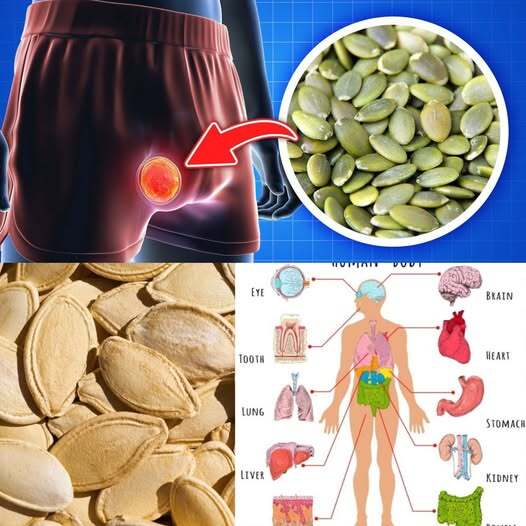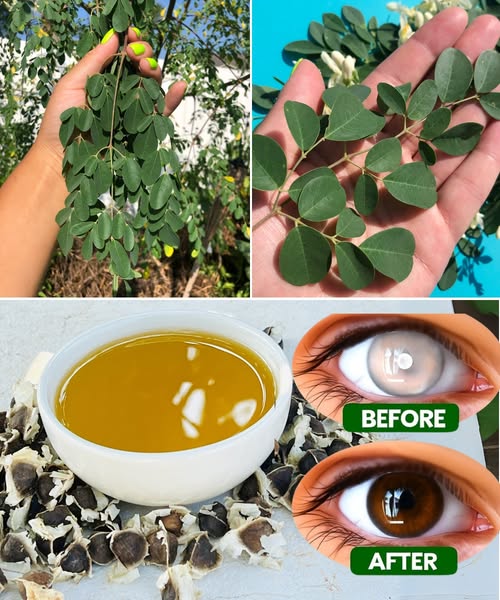Introduction: The Tiny Superfood That Delivers Big Results

In the world of superfoods, few natural ingredients punch above their weight quite like pumpkin seeds. These small, flat, green seeds—also known as pepitas—are nutritional powerhouses often overlooked in everyday diets. But what happens to your body when you eat pumpkin seeds every day? The answer might surprise you.
From improving heart health and balancing blood sugar to boosting immunity and enhancing sleep, pumpkin seeds offer a multitude of benefits. If you’re looking to enhance your well-being with a simple, cost-effective daily habit, adding pumpkin seeds to your routine could be a game-changer.
In this comprehensive guide, we’ll explore the science-backed benefits of eating pumpkin seeds daily, answer frequently asked questions, and explain exactly why this superfood deserves a permanent place in your pantry.
The Nutritional Powerhouse Inside Every Seed
Before diving into the benefits, it’s crucial to understand what makes pumpkin seeds so special. Just one ounce (about 28 grams or two tablespoons) of shelled, roasted pumpkin seeds contains:
- Calories: 151
- Protein: 7 grams
- Fat: 13 grams (6g omega-6)
- Carbohydrates: 5 grams (including 1.7g fiber)
- Magnesium: 37% of the RDI
- Zinc: 14% of the RDI
- Iron: 23% of the RDI
- Phosphorus: 33% of the RDI
- Copper, manganese, vitamin K, and antioxidants
It’s a concentrated source of nutrition with no added sugar, cholesterol, or artificial ingredients.
11 Incredible Benefits of Eating Pumpkin Seeds Every Day
1. Improves Heart Health Naturally
Pumpkin seeds are rich in magnesium, which plays a critical role in maintaining healthy heart function. According to the American Heart Association, magnesium helps regulate blood pressure and prevents sudden cardiac arrest, heart attack, and stroke.
Stat: A Harvard study found that a high-magnesium diet may lower the risk of heart disease by up to 30%.
They’re also packed with antioxidants and healthy fats, which reduce inflammation and oxidative stress—two major contributors to heart disease.
2. Enhances Immune Function
Zinc is essential for a robust immune system, and pumpkin seeds are one of the best plant-based sources of it. Regular consumption strengthens your body’s natural defense mechanisms, reducing the frequency of colds, infections, and other illnesses.
3. Promotes Restful Sleep
If you struggle with insomnia or restless nights, pumpkin seeds can help. They are a natural source of tryptophan, an amino acid that promotes serotonin production, which converts to melatonin—the hormone responsible for sleep.
Pro tip: Eat a handful of pumpkin seeds 1–2 hours before bed with a piece of fruit for better absorption.
4. Supports Prostate Health and Hormonal Balance
Pumpkin seeds contain phytosterols and zinc, both of which are crucial for prostate health and testosterone production. They may help reduce the symptoms of benign prostatic hyperplasia (BPH), a common condition in older men involving an enlarged prostate.
Clinical Insight: A 12-month study showed a significant improvement in urinary function and quality of life in men who consumed pumpkin seed oil daily.
5. Helps Control Blood Sugar Levels
Several studies show that pumpkin seeds can lower blood sugar levels, making them especially beneficial for people with diabetes or those at risk. The high magnesium content plays a role in increasing insulin sensitivity and improving glucose control.
6. Aids in Weight Management
High in fiber and protein, pumpkin seeds are a satiating snack that curbs cravings and keeps you fuller for longer. Unlike many other snacks, they help reduce appetite without a sugar crash.
Tip: Add them to smoothies, salads, or yogurt for a satisfying, nutrient-dense boost.
7. Boosts Mood and Brain Health
Magnesium and tryptophan in pumpkin seeds support mental health and emotional balance. They may help alleviate symptoms of anxiety, depression, and mental fatigue.
Did you know? Low magnesium levels are linked to increased risk of depression. Adding magnesium-rich foods like pumpkin seeds may help restore balance.
8. Strengthens Bones
With 37% of your daily magnesium needs in just one ounce, pumpkin seeds are an excellent bone-strengthening food. Magnesium works with calcium and vitamin D to maintain bone density and prevent osteoporosis.
9. Fights Inflammation
Pumpkin seeds are loaded with antioxidants such as vitamin E and carotenoids, which reduce inflammation throughout the body. Chronic inflammation is a root cause of conditions like arthritis, cancer, and autoimmune diseases.
10. Improves Skin and Hair Health
Rich in vitamin E, selenium, zinc, and essential fatty acids, pumpkin seeds contribute to glowing skin and strong, shiny hair. They support collagen production, reduce acne, and may even prevent premature aging.
11. Enhances Digestive Health
Pumpkin seeds are a great source of dietary fiber, especially when eaten with the shell. Fiber helps improve digestion, regulate bowel movements, and feed beneficial gut bacteria.
Frequently Asked Questions About Pumpkin Seeds
Q: Can I eat pumpkin seeds every day?
Yes. Eating pumpkin seeds daily is generally safe and beneficial when consumed in moderation (about 1–2 ounces). Overeating may cause minor digestive issues due to high fat and fiber content.
Q: Should I eat them raw or roasted?
Both are healthy, but raw pumpkin seeds retain more nutrients. Roasted seeds may taste better and have a crunchier texture but should be roasted at low temperatures to preserve antioxidants.
Q: Do pumpkin seeds help with hair loss?
Yes, thanks to their zinc and iron content, pumpkin seeds promote hair follicle health and growth. They may also block the enzyme DHT, which is linked to hair loss in men and women.
Q: Can pumpkin seeds be eaten on a weight loss diet?
Absolutely. Their high protein, healthy fat, and fiber content makes them ideal for weight control. They promote satiety, help reduce overeating, and support metabolic health.
Q: How do I add pumpkin seeds to my diet?
Here are some easy, actionable ideas:
- Sprinkle on salads, soups, and oatmeal
- Add to smoothies or protein bowls
- Mix with Greek yogurt or cottage cheese
- Include in homemade granola or trail mix
- Use as a crunchy topping for roasted vegetables
- Bake into bread, muffins, or healthy bars
Potential Side Effects and Cautions
While pumpkin seeds are generally safe, be mindful of:
- Calories: High in fat (though healthy fats), so portion control matters.
- Digestive issues: Overeating may cause bloating or mild discomfort.
- Allergies: Rare, but some individuals may have seed-related sensitivities.
Always choose unsalted, unflavored, and organic varieties for maximum benefit.
Conclusion: The Daily Seed Ritual Your Body Will Thank You For
There’s no denying it—eating pumpkin seeds every day is a simple yet powerful way to improve your overall health. From your heart and hormones to your skin, sleep, and digestive system, this humble seed offers far-reaching benefits that are backed by science.
Whether you snack on them raw, sprinkle them into meals, or blend them into smoothies, make pumpkin seeds a non-negotiable part of your daily nutrition. With just a handful a day, you’re not just eating a snack—you’re investing in your future health.
Ready to transform your health one seed at a time? Don’t underestimate the power of consistency. Try adding pumpkin seeds to your daily routine for 30 days—and watch the difference.


